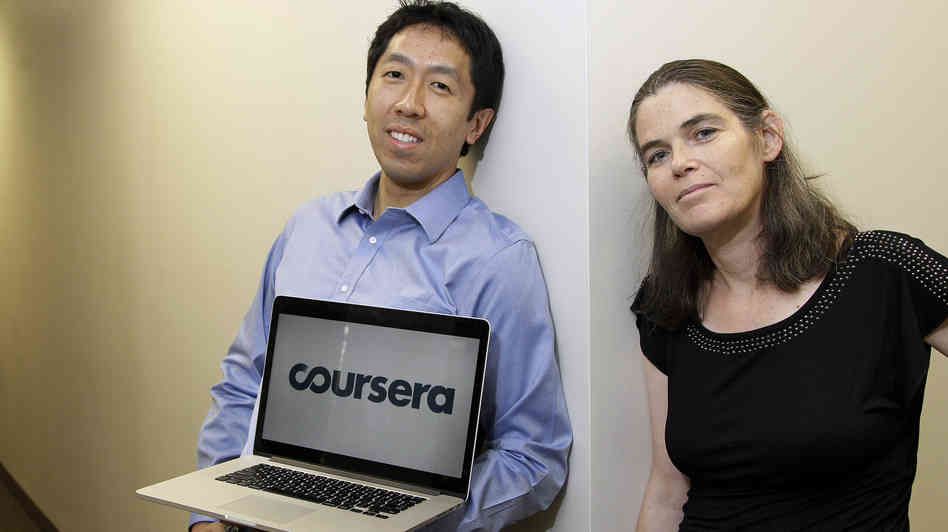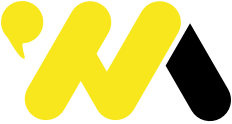College-level education was once only available for those who could 1) get into the university of their choice, and 2) who could afford it or get a scholarship.
But now, education is accessible for free.
The only requirement? A working Internet connection.
A Crowd-Sourced Education
These massive open online courses (MOOCs) have been hailed as game changers in education. The traditional classroom has been transferred to the Internet, where everything is done online: courses, discussions, and grading.
There are no barriers in terms of age, race, geography, or socio-economic status. People from all over the world can enroll in courses of their choice at absolutely no cost (for now), with time being their only investment. Students and teachers, though separated by distance, are connected by their love of learning.
(Image Source: NPR)
An International Community of Learners
Online education companies such as Coursera and Udacity are spearheading the development in these interactive online courses. Both companies can trace their roots to Stanford University.
Coursera was founded by Andrew Ng and Daphne Koller, two computer scientists who taught at Standford. Udacity was a result of a Stanford University experiment by computer scientists Peter Norvig and Sebastian Thrun, whose artificial intelligence course drew record numbers of students from across the globe.
Education and technology writers have known about this for quite some time. As Tamar Lewin discussed in her articles “College of Future Could Be Come One, Come All” and “Students Rush to Web Classes, but Profits May Be Much Later,” universities and venture capitalists have followed suit.

Despite the lack of real-time interaction, these online courses can serve as a good complement to traditional courses. As David Bornstein wrote in his New York Times article “Open Education for a Global Economy“:
As the cost of formal education has skyrocketed and the job market continues to change at a rapid clip, the responsibility for keeping their skills up-to-date will likely fall more and more on individuals. Many will turn to online learning — for convenience and affordability. There are, of course, drawbacks to this. But there are advantages too — including the ability to work at your own pace and gain exposure to a broad array of topics.
Bornstein highlighted what Ireland-based company ALISON (Advanced Learning Interactive Systems Online) is trying to do in this aspect.” ALISON provides free online interactive education to help people acquire basic workplace skills” and “has a million registered learners, the bulk of whom live in the United States, the United Kingdom, India, Malaysia, the Philippines, Nigeria and the Middle East”. As of 2013, many of those living in the above-mentioned developing countries earn far below their counterparts living in developed countries. For example, in the Philippines the average daily wage ranges from $4 to $8.
Free Courses Available Now
Over at Open Culture, they’ve put together a list of over 650 free online non-certificate courses from universities ranging from Stanford, MIT, Yale, Oxford, Harvard, NYU, Cambridge, Princeton, and UC Berkeley, among others.
Fields of interest include Humanities & Social Sciences (Archaeology, Architecture, Art & Art History, Classics & Classical World, Demography, Design, Economics, Film, Food, Geography, History, Journalism, Languages, Law, Linguistics, Literature, Media Studies, Music, Philosophy, Political Science, International Relations and Law, Religion, Sociology, and Urban Studies), Sciences (Aeronautics, Anthropology, Astronomy, Biology/Medicine, Chemistry, Computer Science & Artificial Intelligence, Engineering (Mechanical, Civil and Electrical), Environment & Natural Resources, Mathematics, Physics, Psychology & Cognitive Sciences, and Public Health), and Business.
Some of these online non-certificate courses include:
- The Film Experience – MIT, David Thorburn
- Science and Cooking: From Haute Cuisine to the Science of Soft Matter – Team taught, Harvard
- Game Design – Jason Begy, Philip Tan, MIT
- Ancient Wisdom and Modern Love – Professor David O’Connor, Notre Dame
- Astrobiology and Space Exploration – Lynn Rotschild, Stanford
- Replaceable You: Stem Cells and Tissue Engineering – Jill Helms, Stanford
- Artificial Intelligence – Introduction to Robotics – Oussama Khatib, Stanford
- The Atmosphere, the Ocean, and Environmental Change – Ronald B. Smith, Yale
- The Future of the Internet – Ramesh Johari, Stanford
- Technology Entrepreneurship – Chuck Eesley, Stanford
- Buddhist Psychology – Eleanor Rosch, UC Berkeley
- Jack Kerouac – Allen Ginsberg, Naropa University
They’ve also put together another list of 200 free online certificate courses which offer different sorts of credentials (such as Certificate of Completion, Statement of Accomplishment, and Certificate of Mastery). Some courses have fixed start dates while others do not, leaving it up to the students to sign up and start whenever they want to.
A few upcoming free certificate courses include:
- The Hardware/Software Interface (NI) – University of Washington on Coursera – April (10 weeks long)
- General Game Playing (NI) – Stanford on Coursera – April 1 (8 weeks)
- Gender Through Comic Books (NI) – Ball State on Canvas – April 2 – (5 weeks)
- Songwriting (NI) – Berklee College of Music on Coursera – March 1 (6 weeks)
- Investigating Film Noir (NI) – Ball State on Canvas – March 11 (5 weeks)
- A Beginner’s Guide to Irrational Behavior (CC) – Duke on Coursera – March 25 (6 weeks)
Students enrolled in these classes can reap several benefits, such as accessing education offered by elite universities, learning from professors who are experts in their fields, and engaging in discussions with people in the international community.
Online Courses with College Credit
It was recently reported that five online courses from Coursera would be eligible for college credit (with a fee for the Credit Exam) via recommendations from the American Council on Education’s College Credit Recommendation Service (ACE CREDIT).
These five courses include four undergraduate credit courses and one developmental math vocational credit recommendation:
- Pre-Calculus from the University of California, Irvine
- Introduction to Genetics and Evolution from Duke University
- Bioelectricity: A Quantitative Approach from Duke University
- Calculus: Single Variable from the University of Pennsylvania
- Algebra from the University of California, Irvine
For those who can afford to go to college, this may not be an attractive alternative yet. However, for those whose only option is to go straight to work without a college degree, these courses may provide some basic knowledge, a little hope, and a glimpse into a new world. Cost need not be a hindrance for those willing to learn (while its free).
(Featured Image: Coursera)














